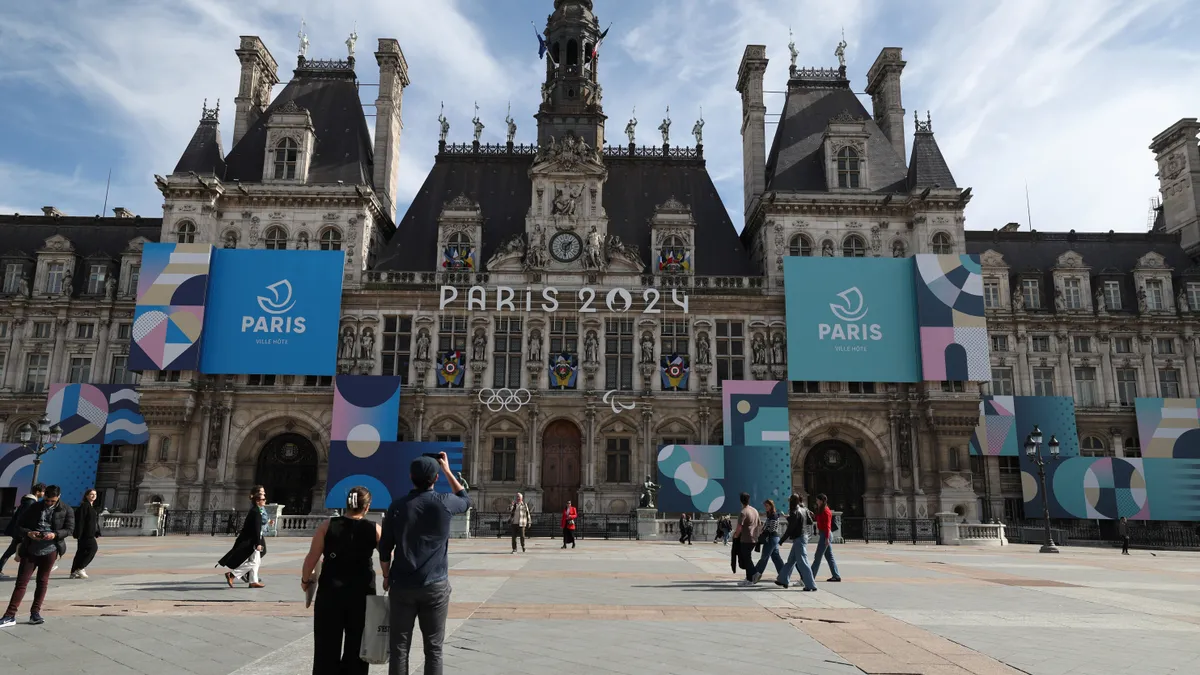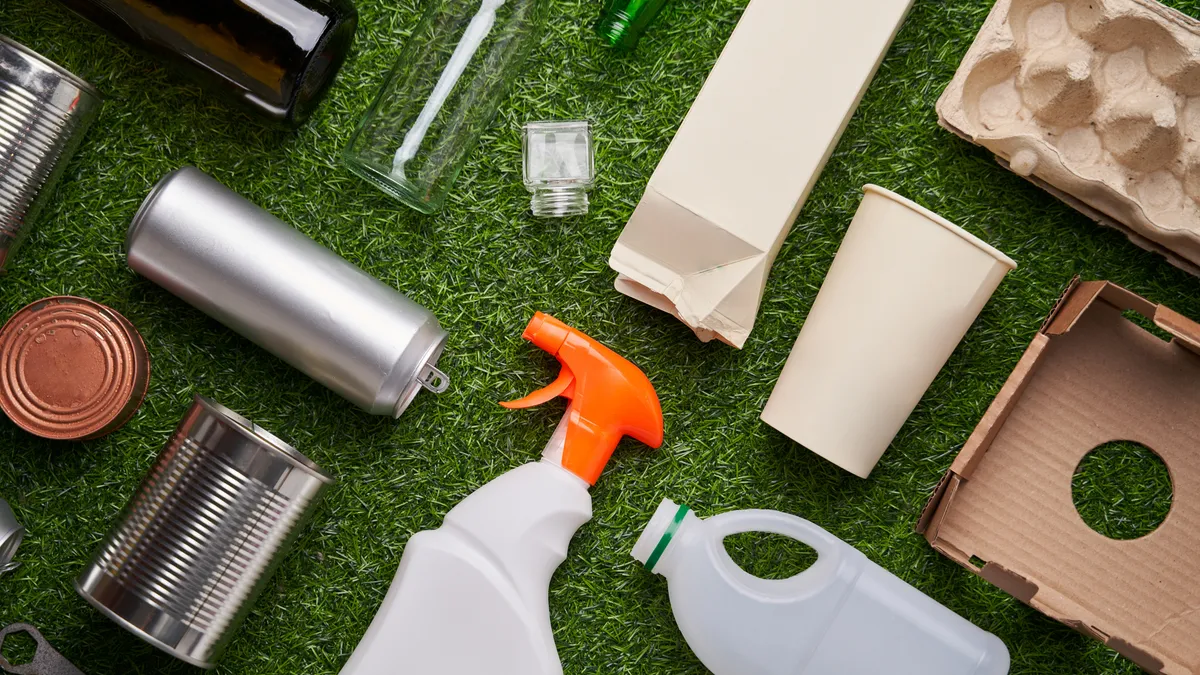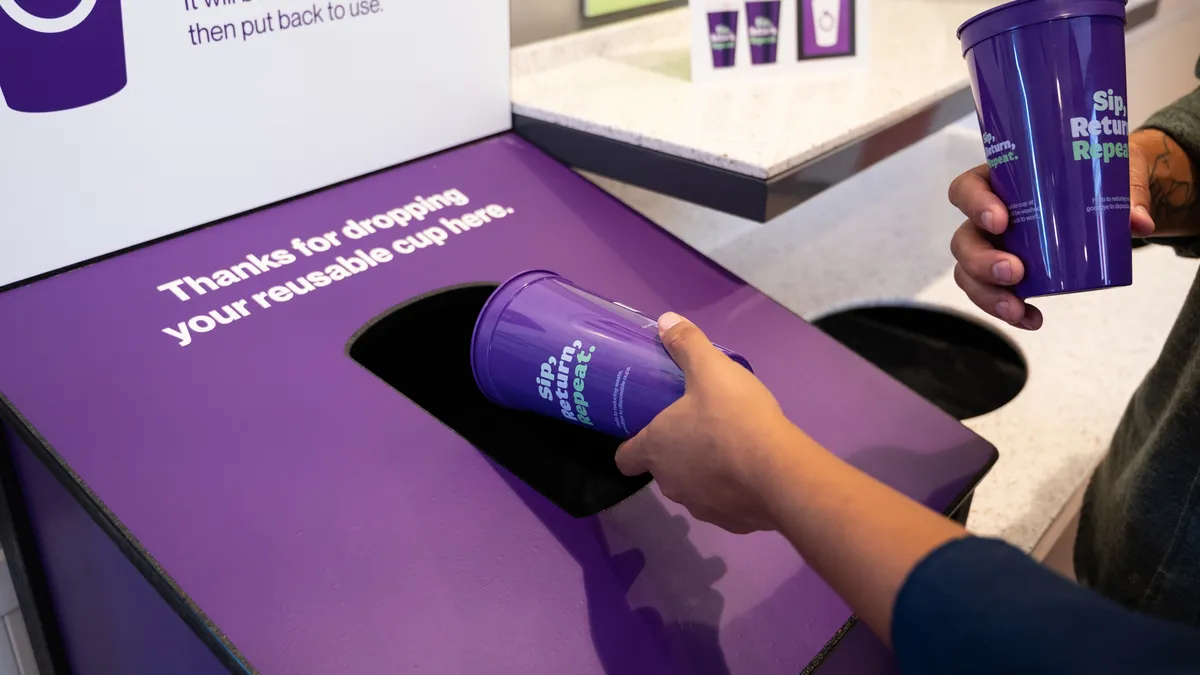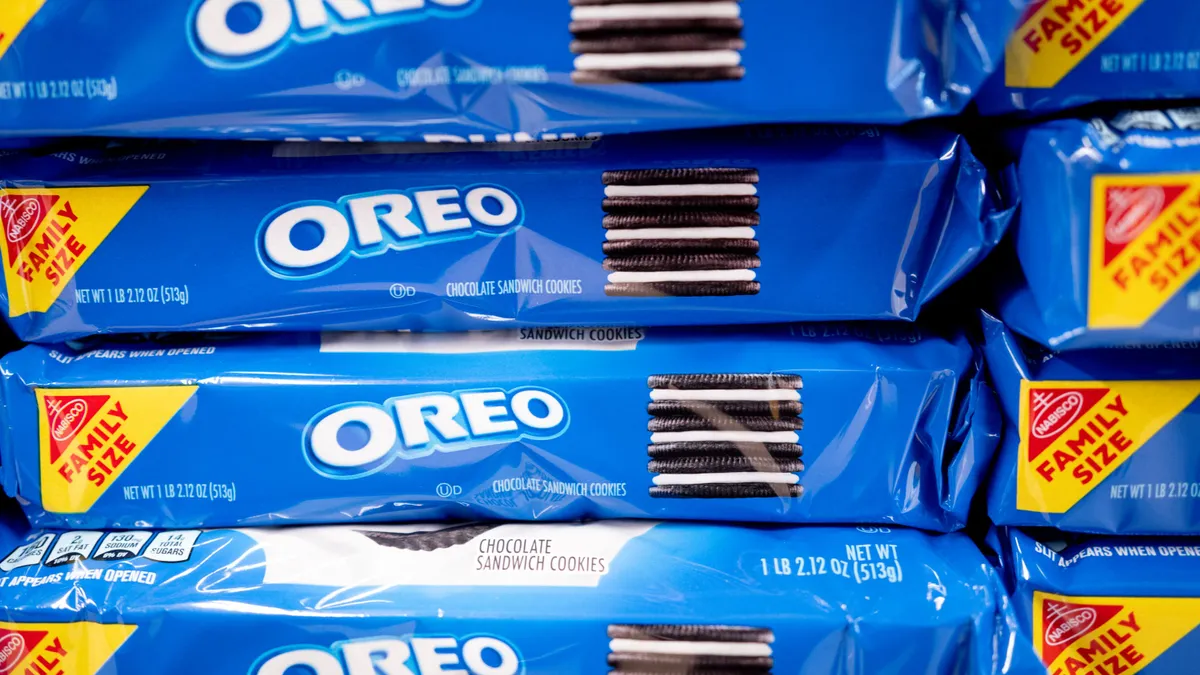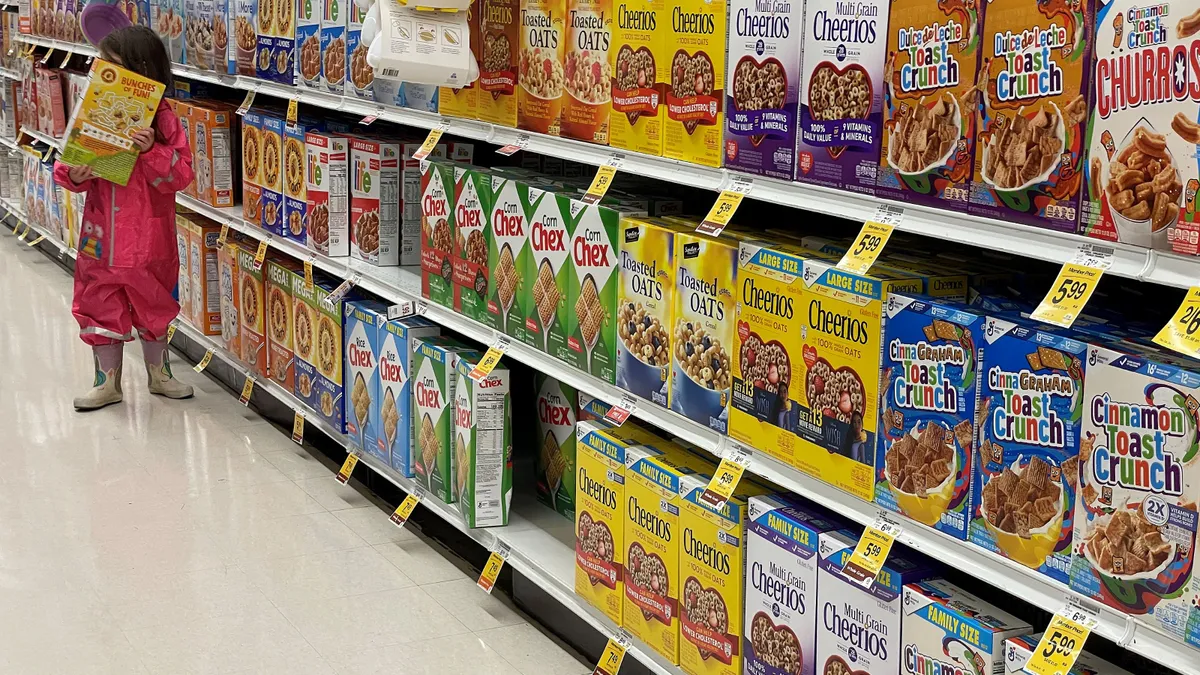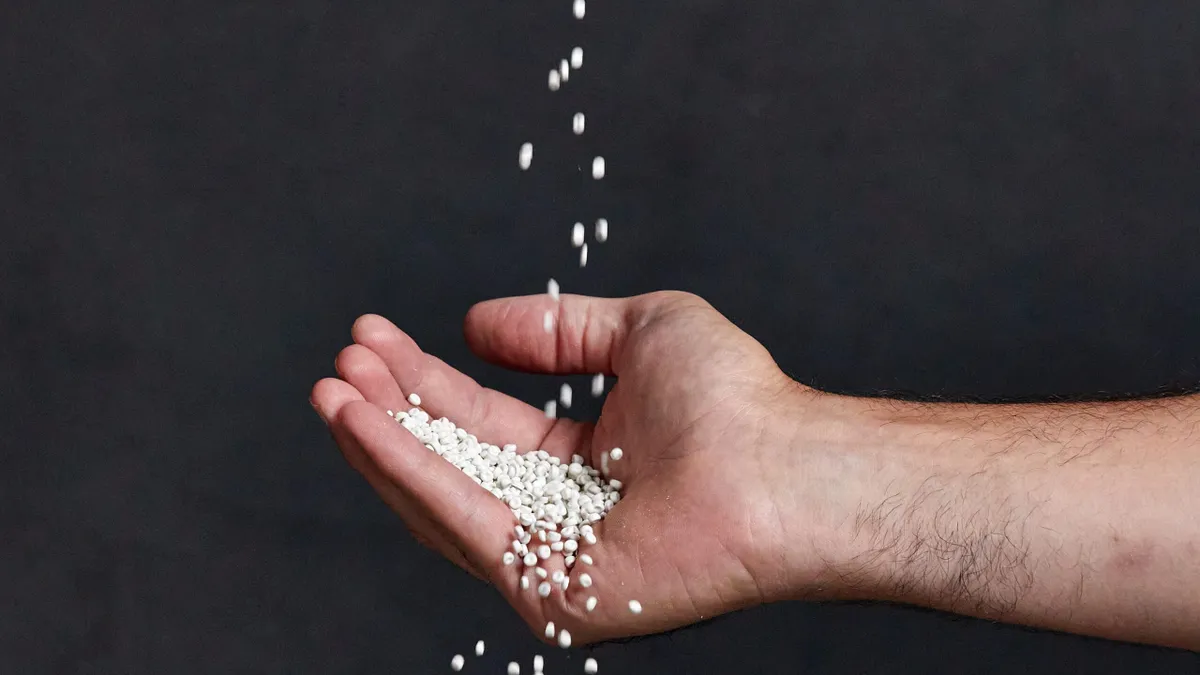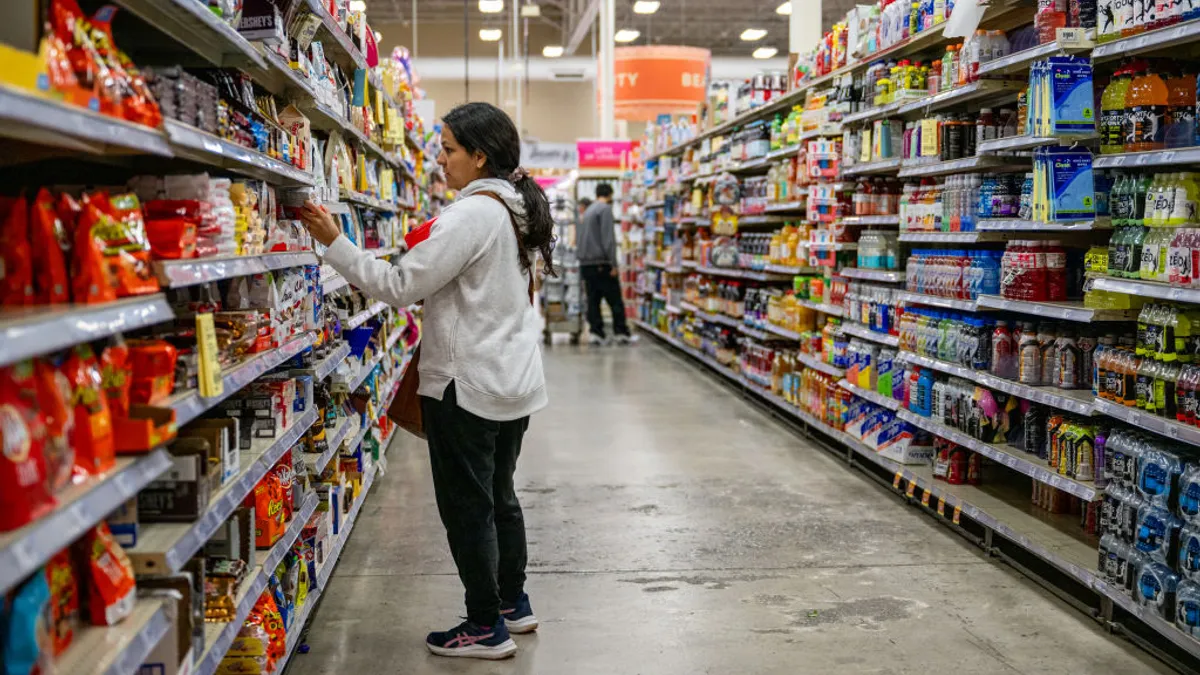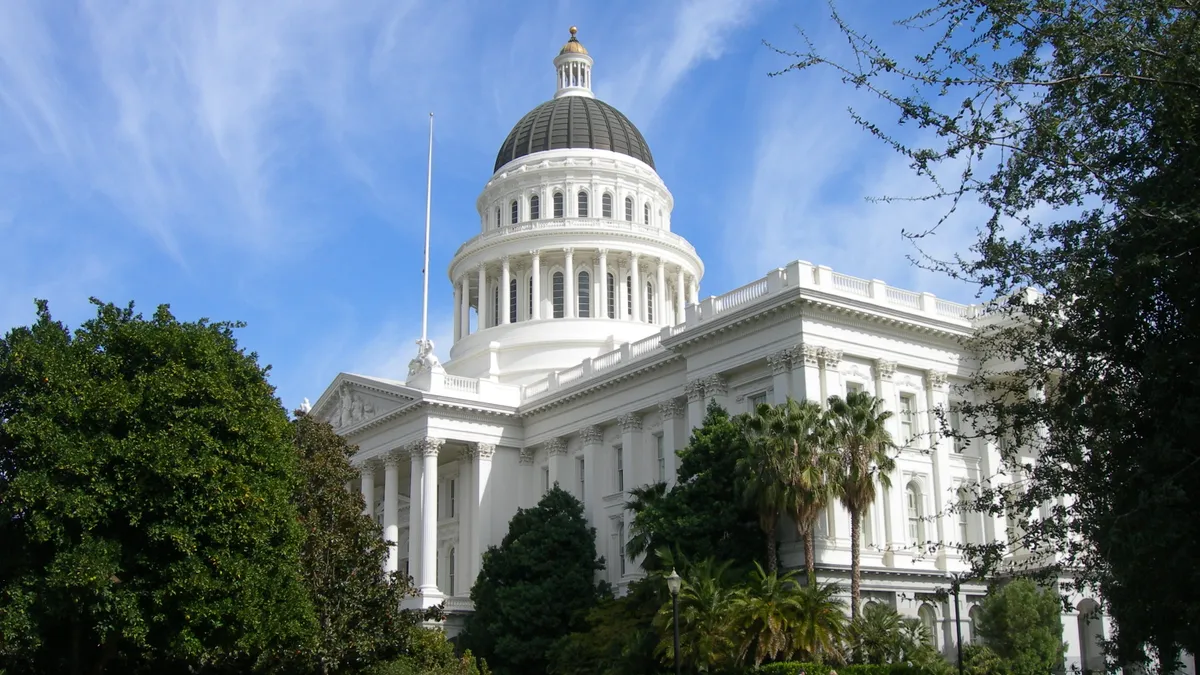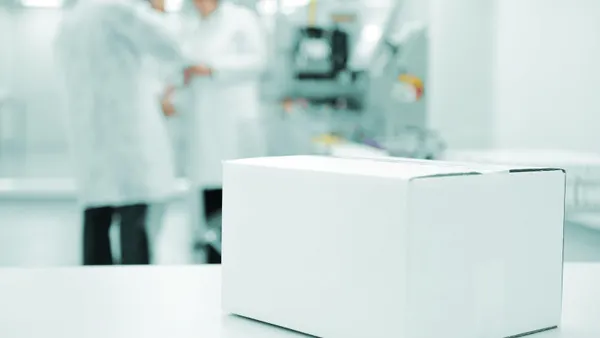The Paris 2024 Summer Olympic Games are underway. They come with certain sustainability initiatives that are firsts for the Olympics, including around how beverages are served during the event. Organizers have tried to mute the environmental impact of this edition of the Games, setting a goal of cutting the carbon footprint in half compared with the average of London 2012 and Rio 2016.
Plastics reduction and implementation of reuse systems is part of that approach. For instance, Re-uz, a European supplier of reusable cups and systems, was selected last year to provide reusable cups and containers for food and drink at the 2024 Games.
Politico reported this week that while spectators won’t be allowed to enter temporary competition sites with single-use bottles, Coca-Cola — the exclusive beverage distributor for this round of the Olympic and Paralympic Games — will still be relying on such plastic containers. The block on single-use plastics doesn’t apply to service provided in venues, including the containers of origin for millions of the drinks that spectators enjoy in cups.
Specifically, French newspaper Le Monde reported in June that Coca-Cola has supported the setup of water and soda fountains (or recycled plastic bottles where these cannot be installed), the use of returnable glass bottles and reusable and returnable “eco-cups.” However, “three-quarters of the 9 million drinks planned for sale will come from plastic bottles but be served in the aforementioned eco-cups,” Le Monde reported, meaning plastic containers are part of the consumer-facing reuse system.
Coca-Cola has a company goal of selling a quarter of its beverage volume worldwide in reusable packaging by 2030. In 2022 it was at 14%. Coca-Cola has not yet released a sustainability report this year with updated statistics.
In a post for Eunomia on LinkedIn this past week, consultant Michael Kirk-Smith wrote that that the Paris Olympics efforts are a “clear missed opportunity to set an example, on the global stage, of how to do reuse right,” but hopefully this “sparks positive conversations about what to do better next time.”
Sporting events and their closed venues have been a popular frontier for returnable food and beverage containers. And environmental degradation is also spurring more climate activism within sports communities.
Earlier this month, a group of organizations — including EcoAthletes, Sailors for the Sea and others — sent an open letter to Coca-Cola and PepsiCo asking that they “come together and commit to more reuse and less single-use plastic.” Specifically, they called for the companies to “dramatically increase” reusable packaging by 2030, make future Olympics and sporting events “run on reuse rather than single-use” and push for legally binding targets and reusable packaging provisions in national legislation and the United Nations’ in-progress global plastics agreement.
Oceana supported that letter. In an op-ed published last week in Fast Company, Matt Littlejohn, senior vice president of strategic initiatives at Oceana, suggested Coca-Cola could better inform customers and signal possible future trends toward reuse through a global commercial campaign around reuse. In a statement to Fast Company, a Coca-Cola spokesperson said the company’s packaging formats at the Games depended “on technical feasibility of the sites” and that it would provide refillable bottles to athletes, staff and volunteers. “We know more must be done. We will continue to collaborate across industries to share learnings and innovate,” the statement read.
The Olympics have implications for packaging beyond Paris, too. Executives at Smurfit Kappa (now Smurfit Westrock) said back in February that they expected more customer promotional activity and a consumer spending boost this summer from the event, based on prior increases.
In the beverage space, Tim Donahue, CEO of can-maker Crown Holdings, said back in April that “all signs point towards a pretty healthy summer,” in the European marketplace. The Olympics were also directly preceded by the European Cup soccer tournament. Coca-Cola and Michelob Ultra are among the Games and Team USA sponsors selling beverages with limited-edition Olympics packaging.



